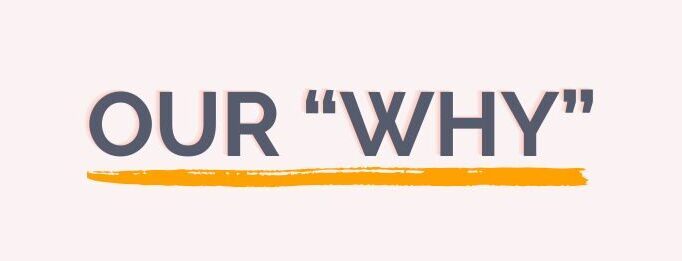At AMS we work with purpose-driven organisations to achieve their missions through great comms.
Cool. We love that.
Our vision is to build an ethical, sustainable and inclusive comms studio.
Also cool. We love that – very much.
But what does “ethical” mean, in a digital age?
Ethics is already a subjective area where views differ depending on individual or social moral codes, especially now everyone has the chance to have their say online. Applying this fuzzy field to a fast-changing world of digital media is tricky – it could easily be the subject of a PhD (and if anyone out there wants to fund that – hi!)
We may not have all the answers yet, but at AMS we want to be informed digital citizens, and use communications for good. The question is, what does that look like?
Social media is a force for good…
Connecting online offers enormous potential for education, equality, employment… you name it . I find it extremely frustrating that there’s still such a huge – and widening – digital divide in education between high and low-income countries. If you can’t access the wealth of information the internet has to offer, how can you compete in a global economy? How can you hope to reach your full potential?
Through social media, we can find people with similar interests, connect with long-lost families, fall in love, or gain vital information. The networks we build online can help us grow as humans, both socially and professionally. At its best, social media gives us the chance to explore, stay informed and flourish creatively.
For us at AMS, we never would have found the incredible talent working in our team across nine different countries (and growing) without platforms like LinkedIn and Twitter, including our brand new Social Studio apprentices! We all make a living, at least in part, through social media, and we’re so grateful for that.
So you could argue that social media does so much good for the world and is a vital tool for 21st-century humans…
… except when it’s not!
There is a more worrying side to being connected.
Did you know that most platforms are gamified to intentionally give us a rush of endorphins when we interact? Pulling the page down to refresh is designed to resemble slot machines. That’s why many (guilty as charged!) struggle to resist a quick flick between tasks.
We also see the ugly side of society on social media. We’ve all seen a troll or two as we scroll through our feeds. Having a profile on any form of social media can also leave us vulnerable to financial fraud, identity theft and violations of our privacy. A charity I work with was recently targeted for a particularly disturbing case of online banking fraud and identity theft. Whilst the financial side was covered by the bank, the organisation’s confidence was knocked; something that will take a while to rebuild.
All this applies even more to vulnerable groups and individuals: the very groups we seek to serve.
We could also ask if the business models of social media platforms are entirely ethical. Platforms make their money through the sale of ads, essentially asking businesses to pay for our attention; end users then become ‘the product’. The owners of social media platforms aren’t business gurus, they’re psychology experts, keeping us locked into the content they want to show us. But is it good for us to mindlessly scroll through social media for hours? Is it healthy to consume so many ads?
Are we happy to finance the lifestyles of tech CEOs?
Take Mark Zuckerberg, founder of Facebook (now Meta) as an example. His ethics were recently questioned in front of congress in the US. You may have also seen this happen with TikTok’s CEO Shou Zi Chew in recent days. In other areas, Elon Musk’s takeover of Twitter seems to be fulfilling his personal values rather than reflecting the greater good, especially in his treatment of Twitter staff. Do we really wish to endorse these messy individuals and post on their platforms, ultimately leading to their business success?
And then we need to question algorithms. How is it decided that when I scroll, I get served different content to someone else? We can never be sure that social media is providing a balanced and biased view to every user – in fact, we can probably be sure it isn’t. Echo chambers of content have led to a rise in extremist groups like QAnon in the US. The more we interact with the content we are served, the more of it we see – so if someone is consuming a lot of political content, they are at greater risk of becoming radicalised by what they keep seeing. Once the algorithm assumes the type of content you want to consume, it’s very hard to find a way out. Especially because there’s very little information available to the public on how these algorithms work and how often they are changing.
How should we communicate ethically on social media.
This all sounds pretty disastrous, right? And there’s so much more we haven’t touched on!
So are we just ‘feeding the beast’, by making our livelihoods on social media? Does this make us a part of the problem? How do we deal with the ongoing conflict of wanting to be an ethical agency whilst engaging with social media to generate success for our clients?
- Recognise that we play a role in this enormous industry. Commit to questioning and scrutinising social media ethics, and our role in it, regularly.
- Do No Harm. Make content and campaigns that are inclusive, add value, and do not encourage harmful behaviours or narratives. Use, and stay up to date with, the principles of ethical storytelling.
- Build positive pockets where social media can not just do no harm, but actively improve the world. We will contribute to informing, educating, supporting and encouraging the people around us and in our online communities.
- Check in regularly. Keep these principles under review via monthly check-ins, stay up to date on how the industry is evolving, and assess how we are performing against these principles.
Final word.
We’re grateful for the positives on social media, for the people it’s allowed us to connect with, for the clients who have raised their profiles internationally thanks to being more connected, and, of course, our wonderful team.
If you would like us to analyse your ethical digital impact, or want support with social media management or content, please get in touch. We love this stuff, and we’re here to do great work with purpose driven people.
==
This blog is part of a series on ethical communications in a digital world. We’ve also covered an FAQ on the ethical use of Artificial Intelligence. For updates as we publish more content, sign up for our newsletter using the box at the bottom of this page.







